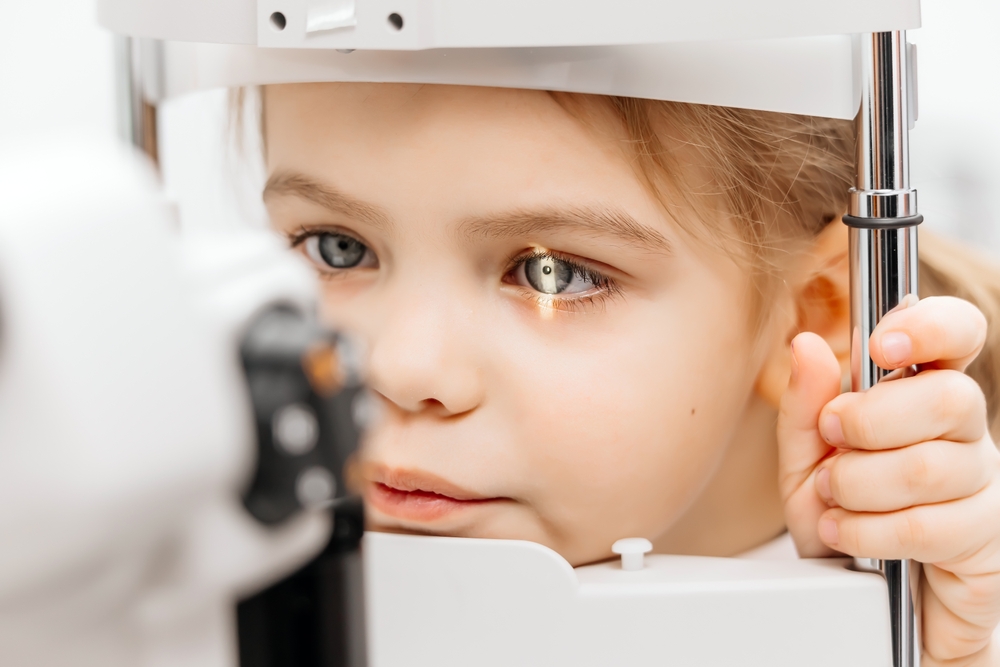
Children rely heavily on their vision to explore, learn, and grow. From recognizing faces to understanding the world around them, clear and healthy eyesight plays a vital role in their development. Early vision care not only ensures children have the tools they need to succeed but also prevents long-term issues that may impact their quality of life.
The Importance of Early Vision Care
Vision problems can develop as early as infancy, and often, children may not realize they are experiencing difficulty seeing clearly. Many eye conditions are more effectively managed when caught early. Regular eye exams are crucial in identifying and addressing these issues before they become more severe.
Some common vision problems in children include:
Refractive errors like nearsightedness, farsightedness, and astigmatism
Strabismus (misaligned eyes), which can lead to difficulty focusing
Amblyopia (lazy eye), where one eye doesn’t develop proper vision
Convergence insufficiency, impacting reading and close-up tasks
Long-Term Consequences of Untreated Vision Problems
If left untreated, childhood vision issues can have far-reaching consequences, including:
Learning difficulties: Poor vision can hinder a child’s ability to read, write, and process information in the classroom.
Delayed development: Vision problems may affect motor skills, coordination, and overall development.
Social challenges: Struggling with activities like sports or play due to poor vision can affect a child’s confidence and social interactions.
Permanent vision loss: In some cases, conditions like amblyopia can lead to irreversible damage if not treated promptly.
How Early Vision Care Helps
Comprehensive eye exams are vital for catching subtle vision issues that might otherwise go unnoticed during routine pediatric check-ups. These exams allow eye doctors to identify potential problems early, providing an opportunity to address them before they develop into more significant complications.
Every child’s vision needs are unique, and early intervention allows for tailored solutions to address specific challenges. Whether it’s corrective lenses, vision therapy, or other treatments, customized care ensures that children receive the support they need to achieve optimal vision and overall well-being.
Certain conditions, such as myopia (nearsightedness), tend to worsen over time if left unmanaged. By starting myopia management strategies early, including specialized lenses or treatments, parents can help slow the progression of the condition. This proactive approach reduces the risk of future complications and helps maintain healthy vision for years to come.
Clear vision is fundamental to a child’s success in school, as it impacts their ability to read, write, and engage in classroom activities. By addressing vision issues early, parents can ensure their children are set up for academic success. Healthy eyesight enhances focus, learning, and confidence, all of which are essential for thriving in an educational setting.
When Should Your Child Have Their First Eye Exam?
The American Optometric Association recommends a child’s first comprehensive eye exam at six months of age, with additional exams at age three and before starting school. If your child displays symptoms like frequent squinting, eye rubbing, or difficulty focusing, schedule an appointment promptly.
Partner with Riverdell Vision for Your Child’s Eye Health
Early vision care is a powerful investment in your child’s health and future. By detecting and addressing potential issues early, customizing solutions to their unique needs, and preventing the progression of conditions like myopia, you can help set the foundation for a lifetime of clear vision. Additionally, supporting your child’s eyesight ensures they have the tools to succeed academically and socially, boosting their confidence and development.
Schedule your child’s comprehensive eye exam with Riverdell Vision and take the first step toward protecting their vision for years to come. Visit our office in Oradell, New Jersey, or call (201) 268-7566 to book an appointment today.



